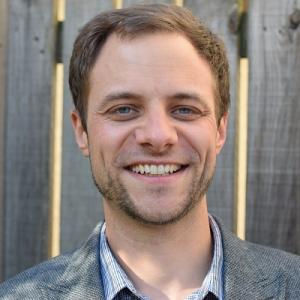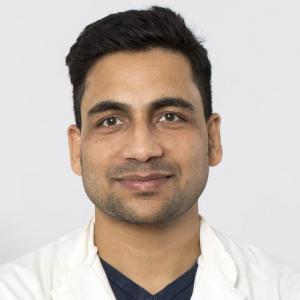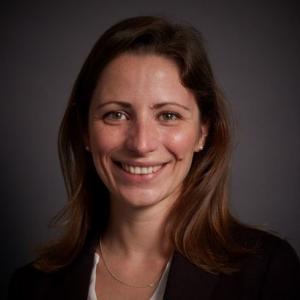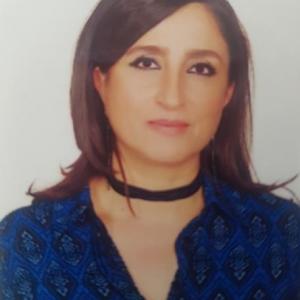Short description:
I am co-founder, and senior advisor to Afrobarometer, a regular survey of citizen values, evaluations and experiences of democratic governance and well-being in over 35 countries. My research concentrates on how public opinion, legislatures, and political parties shape trajectories of democratization or democratic backsliding.
Short description:
Sonila Danaj is a researcher and project coordinator at the European Centre for Social Welfare Policy and Research. She has worked as a researcher for fifteen years doing research and coordinating projects in the areas of employment, migration and social policy. At the European Centre, she has been managing and acting as researcher for four projects on posted workers and doing research for several others, where Western Balkans countries have been included as case studies. Some of the recent projects where she has used her expertise on the WB include Posting of Workers in Eastern Europe (EEPOW) project, Posting of third country nationals: Mapping the trend in the construction sector (Con3Post), Bridging the gap between legislation and practice in the posting of workers (POW-Bridge), Support for better social services for the most vulnerable groups in Kosovo, and Integrated case management for employment and social welfare users in the Western Balkans. Sonila is also a PHD Candidate at the University of Jyvaskyla, in Finland, where she is finalizing a dissertation on Eastern European labour migrants in the EU labour market. Previously, she has also served as a research consultant for various international organizations and NGOs.
Short description:
I am a Chancellor’s Fellow at the University of Strathclyde, working between the Departments of Government and Public Policy, and Electronic and Electrical Engineering. I am a UKRI COP 26 Fellow, focussing on energy justice, aligning evidence for a socially equitable energy transition with financial, environmental, and other outcomes, and providing policymakers with useful and usable insights to deliver a prosperous and equitable net-zero society. I also serve as Research Director to the UK’s Energy Revolution Research Consortium (EnergyREV), which brings together 32 academics across 22 institutions to work alongside policymakers, businesses, and energy industry organisations, exploring the UK’s transition toward smart local energy systems. I am a multidisciplinary scholar who strongly believes in the importance of research for impact, and in bridging the gap between different forms of knowledge and ways of understanding to advance solutions tackling climate change. I am interested in how people interact with energy systems, and how social science and technological insights can be co-developed to better inform policy.
Short description:
I am a Senior Lecturer in International Relations in the School of Government & Public Policy and Chancellor’s Fellow in the Centre for Energy Policy at the University of Strathclyde. I am also a Fellow at the Initiative for Sustainable Energy Policy (ISEP), Johns Hopkins School of Advanced International Studies (SAIS) and Associated Researcher at the Centre for the Political Economy of Reforms at the University of Mannheim.
I study central questions in international cooperation and the political economy of environmental politics and energy policy. Current projects include research on the political economy of carbon markets, firm regulation and private politics, the politics of energy transition as well as formal and empirical models of climate treaty-making.
My work was published, among others, in the Journal of Politics, the Journal of Conflict Resolution, Energy Economics, PNAS, and Science Advances. My book on Escaping the Energy Poverty Trap was published with MIT Press in 2018 and offers the first comprehensive political science account of energy poverty. I have written for The Washington Post‘s Monkey Cage, VoxDev, and ISEP. My work has been covered by The Economist.
My CV and list of publications can be found on my website at www.patrickbayer.com and I tweet as @pol_economist.
Short description:
I originally trained in applied mathematics, computer sciences and project management, and worked for over a decade in the Information and Communication Technologies industry, where I held a variety of positions (analyst/programmer, junior consultant, sales engineer, major account manager). I returned
to higher education as a mature student, and obtained a PhD in Science and Technology Studies from University College London in 2010, funded by the UK Economic and Social Research Council. I joined the Department of Global Health & Social Medicine at King's College London in 2014,
where I am senior research fellow of the Foresight & Responsible Research and Innovation Lab. For over six years until March 2020 I was part of the Ethics and Society group of the Human Brain Project (HBP), EU Future and Emerging Technologies flagship, for which I have conducted research on ethical and social aspects of computational neuroscience and related technologies (such as AI, robotics, neurotechnology, brain-inspired computing), contributing to the development and deployment of responsible research and innovation (RRI) practices across the HBP. Alongside ongoing research projects, I am currently RRI lead for two Centres of Doctoral Training at King's College London - in Smart Medical Imaging, and in Safe and Trusted AI.
Short description:
Filiz Polat is a Professor of Inclusive Education at Nazarbayev University, Graduate School of Education (NUGSE), Kazakhstan. Before joining NUGSE in August 2018, she held positions at the University of Manchester (UK); University of Bristol (UK); University of Hong Kong (Hong Kong SAR, China); and, Istanbul Medipol University (Turkey). Filiz started her career as a school psychological counselor in Ankara, Turkey. She received her first postgraduate degree (MSc) from Middle East Technical University (METU), Turkey which followed with degrees received from the University of Manchester (MEd & Ph.D.), Egland. She has been researching and teaching in the field of inclusive education for more than 20 years.






